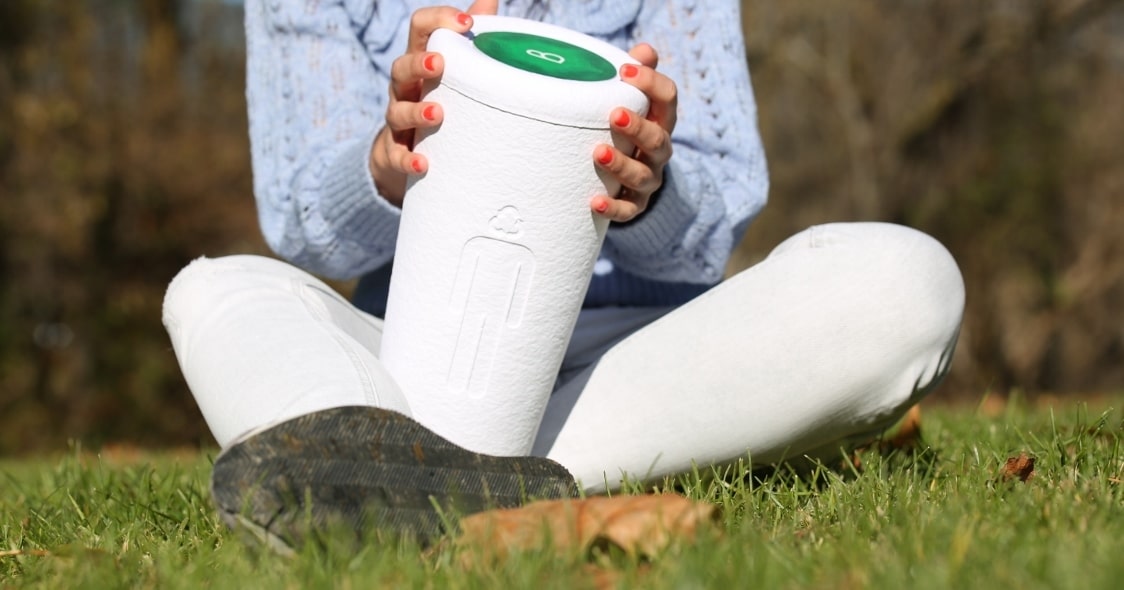
One of the biggest questions people ask themselves when considering using a Bios Urn ® is:
Is it legal to plant a biodegradable urn containing ashes in the country where I live?
What is often found is that many countries´ laws don’t actually specify if it is legal or not to plant a biodegradable urn that turns a person into a tree. The laws have often not evolved as quickly as the marketplace. For example, planting a 100% biodegradable tree urn is not the same as scattering ashes, yet in some countries it falls under the regulations of the latter. Still, it is mandatory to understand all the laws and regulations about planting a biodegradable urn where you intend to plant before purchasing one.
The laws relating to the burial of ashes or the scattering of ashes changes from country to country, and even town to town. This article focuses on some of the main countries in Europe.
This article hopes to provide initial guidance as to the legalities of planting a biodegradable tree urn where you live, but we cannot be responsible for the accuracy of the information featured as it is a complex and ever changing matter. We have also included all of the external information sources of the information stated. We highly suggest that you contact the local authorities or a local funeral home for exact and up-to-date information. If you have anything to add or amend, or if your European country is not featured here, please let us know. We would love to hear from you in the Comments section below!
Carry on reading to find out if it is legal to plant a biodegradable urn in your country.
Laws On Planting A Biodegradable Urn With Ashes On Public Or Private Land In Europe
Is it legal to plant a biodegradable urn in the UK?
Burying ashes on private property in the UK
Burying ashes at home in your garden can be a very personal, flexible and affordable alternative to a traditional funeral. You could, for example, arrange a direct cremation without a funeral, and then hold a private service at your home when you place the ashes in their final resting place. Or, you could bury the ashes after a funeral as part of an intimate memorial gathering with friends and family.
It is possible to bury ashes in a biodegradaeble urn on private property as long as you have the landowner’s permission before you go ahead with the burial. The landowner should check the title deeds of the house to make sure there aren’t any covenants that might restrict the burial of ashes. They will also need to keep a record of the burial somewhere safe – usually with the deeds. Information source.
Some practical details, aside from paperwork:
- How deep are cremated ashes buried? There are no specific rules about this, but it’s a good idea to bury them at least a metre deep.
- Do I need to ask the Environment Agency or local council? No – unlike the burial of a body, you don’t have to consult with the local council or the Environment Agency.
One thing to remember when burying ashes in the garden is that if you move and don’t take the ashes with you, you might not be able to get permission to visit the grave from the new owners. Information source.
Burying ashes in a public place in the United Kingdom
Common land, like village greens, does belong to someone. So, while you have the right to roam there, you don’t automatically have the right to scatter ashes and bury ashes there. It’s important to ask for permission before going ahead. Information source.
Many green or woodland burial sites will accommodate biodegradable urns for burial. Information source. Here is one list of natural burial grounds in the UK, but there are probably more by inquiring locally or searching online.
The Woodland Trust welcome the careful scattering of ashes in a number of their woods, free of charge. Each individual woodland will be able to confirm if they also accept the plantation of a Bios Urn ®. Information source.
The National Trust have given families permission to scatter ashes in the past. With regards to the burial of ashes in a biodegradable tree urn, you can ask those managing the specific National Trust site you would like to plant it in before going ahead. Information source.
With regards to a UK National Park – the Brecon Beacons, the Lake District, Dartmoor, and others – scattering ashes is often fine, with permission. You’ll need to contact the organizations separately in order to request permission to bury the ashes in a biodegradable urn. Information source.
You can bury ashes in a cemetery or churchyard (although this may not always be an eco-friendly option and it may not be possible to plant with a biodegradable tree urn). Most cemeteries and crematoria in the UK have gardens of remembrance for the burial of ashes, possible for a biodegradable urn. Do check if this is acceptable by asking your funeral director. Information source.
Be aware that burial land is leased. You purchase an “exclusive right of burial” that says that only you can decide who can be buried in the plot for a set period of time (usually 25-100 years). Once the time is up, a reminder letter will be sent to the owner of the exclusive rights the chance to renew. If the exclusive right of burial is not renewed, the person buried there won’t be moved. But any headstone on that plot might be taken away, and other people may also be buried on that land. The average cost to bury ashes is around £600, but the price can be as little as £100 or as much as £2,000 depending on the cemetery/churchyard and the type of grave chosen. Information source
Is it legal to plant a biodegradable urn in Spain?
On private property in Spain
Burying ashes at home in your garden can be a very personal, flexible and affordable alternative to a traditional funeral. You could, for example, arrange a direct cremation without a funeral, and then hold a private service at your home when you place the ashes in their final resting place. Or, you could bury the ashes after a funeral as part of an intimate memorial gathering with friends and family.
It is possible to bury ashes in a biodegradable urn on private property in Spain as long as you have the landowner’s permission before you go ahead with the burial and as long as you follow the same rules as the plantation in a natural environment (see below). Information source.
In a public place in Spain
If you want to deposit cremains with an urn in nature, you can do so as long as the urn is biodegradable. Biodegradable urns such as the Bios Urn ® disintegrate making it a natural and memorable option: they are the perfect for those seeking a sustainable ceremony. Information source.
The funeral sector pressures for them to be deposited in cemeteries (which includes the payment of an annual fee). The Catholic Church also argues that “the spirit does not rest in peace” in nature, but only in consecrated places. However, in Spain, there is no obligation to deposit or bury ashes in a cemetery, unless the regional regulations indicate otherwise. In a small minority of municipalities, they have regulated it differently. Therefore it is good to check the legislation in this regard before planting to make sure. Information source.
What is evident is that depositing or burying a non-biodegradable urn is an uncivil act as is abandoning garbage in nature. It is highly polluting, since these non-biodegradable urns are made of materials such as glass, ceramic or metal. Information source.
That said, burying human ashes in the streets and parks is not permitted.
Another option is planting in an “ash forest” where you can carry out a ceremony to deposit the ashes of a deceased relative. You can find them by searching the internet for keywords such as “ash forest”, “natural / green / ecological cemeteries” or “gardens / forests of life for ashes” in Spain to see if there are any near you. This is a still relatively new concept, but we hope that more and more will slowly start to open to make it an option available to all. Information source.
In short, there is no legal limitation in this regard in Spain except in some specific municipalities – you can confirm this with your local city council. The Bios Urns ® can be planted in any private land as in any natural environment such as in the forest, except in the streets and parks, as long as they are in a 100% biodegradable urn.
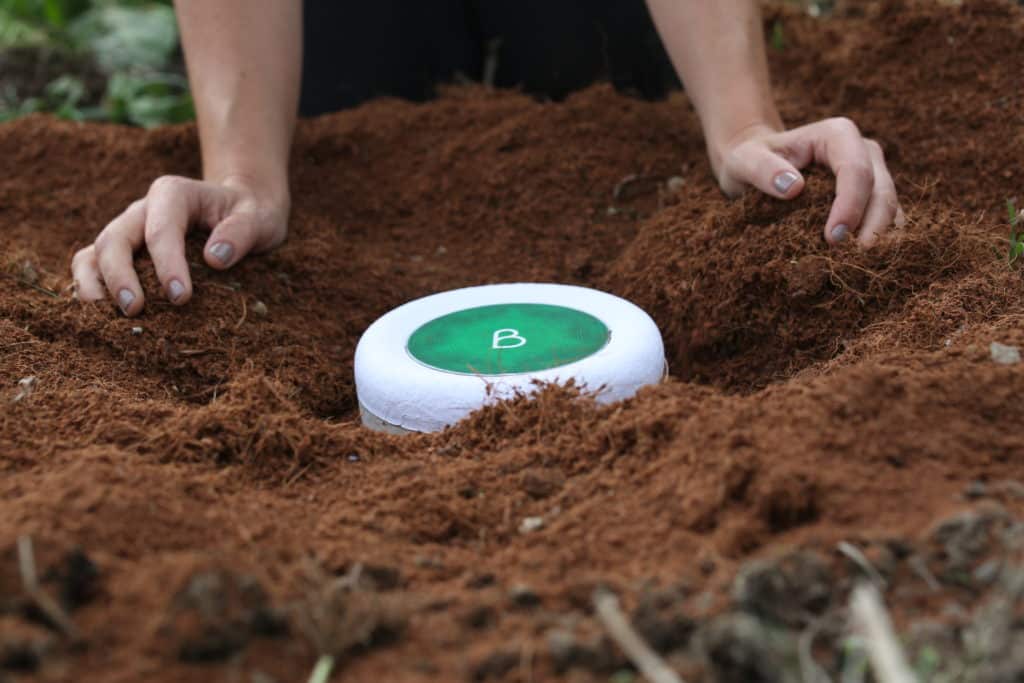
Find out here if it is legal to plant s biodegradable urn with ashes on public or private land in Europe. Photo by Bios Urn
Is it legal to plant a biodegradable urn in France?
On private property in France
Burying ashes at home in your garden can be a very personal, flexible and affordable alternative to a traditional funeral. You could, for example, arrange a direct cremation without a funeral, and then hold a private service at your home when you place the ashes in their final resting place. Or, you could bury the ashes after a funeral as part of an intimate memorial gathering with friends and family.
Sadly, it is no longer possible to plant a biodegradable urn on private land in France since the new 2008 law (art. L2223-18-2 CGCT). This law was established mainly to prevent the many abuses linked to the scattering of ashes and the abandonment of non biodegradable urns in public places deemed unsuitable by the French state.
What we often discover in many countries is that the laws do not specifically cover is the principle of planting ashes in a biodegradable urn which will then become part of the earth when the urn has biodegraded and a tree will grow in its place. Is it considered the scattering of ashes? Not really. Or should it be considered the conservation of ashes? Not really either. In fact it’s a bit of both.
And according to the description of the French law, it is hard to see how a 100% biodegradable urn could be considered “abusive”. We think not, since the ashes give birth to a tree, which is good for the planet and leaves absolutely no traces, therefore zero waste. It will remain to be seen whether the French law changes again to cover this very specific circumstance. As of yet, we do not know of any case legal case where a person has been brought to justice for having planted a biodegradable urn at home or in nature on his private land.
In a public place in France
Regarding a public space, planting the Bios Urn ® in France is legal under certain conditions.
It is possible to ask your local town hall for the approval of the burial of ashes on a municipal land. Information source.
The complexity of the issue of the destination of cremains in France has forced the Ministry of Territorial Cohesion and Relations with Local Authorities to publish in December 2018 a guide of recommendations related to funeral urns and burial sites. This guide tries to use simple language based on questions and answers and in a practical way explain how to proceed. This guide in turn is intended to be a supplement to a comprehensive guide to funeral legislation published by the same ministry in 2017.
There is also the possibility to approach a private green cementery with dedicated space for the planting of urns. There are currently only a few “natural cemeteries” in France at present (2021), but that should develop quickly we think (and hope!) as demand for this type of space grows: Cimietère Natural de Souché in Niort, the Arbas ash cemetery in the Haut Garonne, the Arbres de Memoire cinerary park in the Loire, or the Jardins de Mémoire in Brittany. Information source.
Is it legal to plant a biodegradable urn in Belgium?
On private property in Belgium
Burying ashes at home in your garden can be a very personal, flexible and affordable alternative to a traditional funeral. You could, for example, arrange a direct cremation without a funeral, and then hold a private service at your home when you place the ashes in their final resting place. Or, you could bury the ashes after a funeral as part of an intimate memorial gathering with friends and family.
Laws regarding the destination of human ashes in Belgium is quite strict. The ashes can be buried or dispersed in a private domain on condition of obtaining prior authorization from the owner, which can only be done with an authorization certificate from an official Foundation that deals with these matters. This authorization certificate can be obtained during while the person is alive, or at the time of death. It is drawn up in 2 copies. One for the applicant or for the municipality where the death is declared, the other for the Foundation´s register. Information source.
In a public place in Belgium
It is unfortunately prohibited for human cremation asehs to leave the cemetery if it is not in the hands of a funeral director or an authorized organization. Likewise,it is prohibited to disperse or bury them in natural. Information source.
The only option is for a biodegradable urn to be buried at the foot of an existing tree or a plant in an official “cinerary park”. Information source.
Is it legal to plant a biodegradable urn in the Netherlands?
On private property in the Netherlands
Burying ashes at home in your garden can be a very personal, flexible and affordable alternative to a traditional funeral. You could, for example, arrange a direct cremation without a funeral, and then hold a private service at your home when you place the ashes in their final resting place. Or, you could bury the ashes after a funeral as part of an intimate memorial gathering with friends and family.
In Holland, the good news is that you can keep the urn at home, or bury it in your garden, as long as you ask permission from the landowner. Information source.
In a public place in Holland
Once you’ve been cremated, the funeral home will keep your ashes for a full month in Holland. This is in case they are needed for a criminal investigation – that is the official line anyway. After that, you can pick them up. But scatter them where ever you like? Oh no. There are strict rules about that.
You need to ask permission from the landowner and that, if it is a local authority, can be rather expensive as well (upwards of €1,000). Information source.
If you want to bury the ashes in a particular wood or near a certain lake or pond, then you’ll need to get permission first from Staatsbosheer (they control woodlands) or Rijkswaterstaat (they’re responsible for waterways). Information source.
You also have the option of burying a Bios Urn in a green cemetery. Here is one example or you can also carry out an internet search for keywords such as “cinerary park”, “burial woodland”, “green cemetery” or “natural burial ground” near you.
So in the Netherlands, by law ash can only be scattered or buried in specially designated areas (and this may include a cost) or with specific permission. Information source.
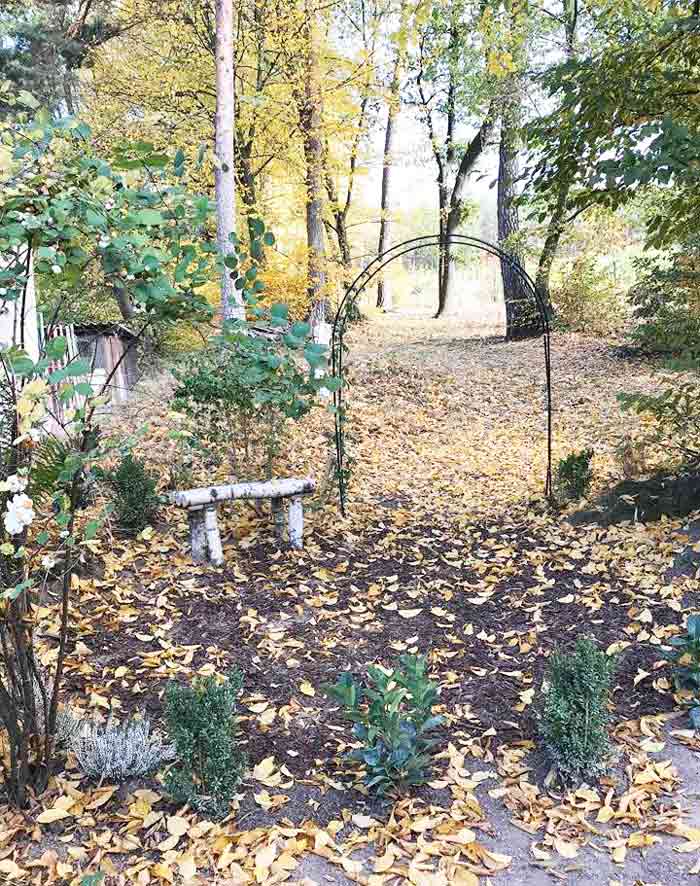
One family created this memorial garden on the land they own behind their house. Photo: Bios Urn
Is it legal to plant a biodegradable urn in Italy?
On private property in Italy
Burying ashes at home in your garden can be a very personal, flexible and affordable alternative to a traditional funeral. You could, for example, arrange a direct cremation without a funeral, and then hold a private service at your home when you place the ashes in their final resting place. Or, you could bury the ashes after a funeral as part of an intimate memorial gathering with friends and family.
If you live in Italy you might be able to keep, bury or scatter the ashes of your loved one at home. However, please be aware that this is not always possible as it depends on your local council regulations and you will need to obtain prior authorisation from your Town Hall.
In Italy the authorisation for the cremation is given by the local Registrar (Ufficiale di Stato Civile) who acts on behalf of the local Mayor. The authorisation for the cremation can be issued upon production of a medical certificate stating that the death did not occur under suspicious circumstances and there is no objection to the cremation. In cases of unexpected or sudden deaths that have been subject to an investigation, the authorisation must be granted by the Court. Information source.
The local Registrar will also need to be satisfied that it was the will of the deceased, and not of the family, to be cremated. In order to satisfy this requirement the Registrar will accept either the deceased’s signed last will or a statutory declaration from the next of kin signed in front of the local Registrar. Information source.
The Catholic Church in Italy also issued new guidelines that rule out scattering the cremated remains of a person or the keeping them in an urn at home. “Cremation is considered as concluded when the urn is deposited in the cemetery,” says the appendix to the new edition of Funeral Rites issued by Italian Episcopal Conference. “The practice of spreading ashes in the wild or keeping them in places other than the cemetery,” it adds, “raises many concerns about its full consistency with the Christian faith, especially when they imply pantheistic or naturalist conceptions.” Information source.
In a public place in Italy
It is unfortunately not possible to scatter or bury cremation ashes in a public place in Italy. Although the Catholic Church accepts cremation, it is not permissible to scatter ashes. Information source.
The church banned cremation for centuries, but began to allow it in 1964, as long as it is not done for reasons at odds with Christian doctrine.
Cremation has also become increasingly popular in Italy, where 33% of the deceased in 2017 had opted for it. Rules vary by places and sometimes from town to town. People may be allowed to bury urns inside cemeteries, keep them at home or even scatter the ashes at seas.
Cremation procedures can vary depending on the local council regulations. If you are thinking of arranging a local cremation, please take advice from your local funeral director/ undertaker. Crematoriums are not located in every region therefore there might be longer waiting times depending on the area where the death occurred. Information source.
Please also note that most crematoriums in Italy don’t have facilities to host a funeral service of any description. The service will need to take place either in Italy (in a church or other location) before the cremation. Information source.
In summary, it is illegal in Italy to scatter or bury ashes. However it may be possible to obtain a formal authorization from the local City Hall. Authorization and regulations to scatter or bury ashes may be obtained from the “Comune” (City Hall). Information source.
Is it legal to plant a biodegradable urn in Switzerland?
On private property in Switzerland
Burying ashes at home in your garden can be a very personal, flexible and affordable alternative to a traditional funeral. You could, for example, arrange a direct cremation without a funeral, and then hold a private service at your home when you place the ashes in their final resting place. Or, you could bury the ashes after a funeral as part of an intimate memorial gathering with friends and family.
We understand that it is possible to plant a biodegradable urn on private land in Switzerland with approval of the landowner, but were not able to find much relative information so cannot be certain or if there are specific regulations relating to this practise. If you know more about this, please write to us in the Comments section below!
In a public place in Switzerland
Because of the beautiful scenery, the Alps, Lake Zurich, and other bodies of water, have become favourite locations for scattering or burying ashes, but local Swiss residents haven’t necessarily been happy about this.
After 67 cremation urns were found at the bottom of Lake Zurich in 2010, commercial and professional disposal of human remains outside of a cemetery was banned. It turns out that a local clinic had been dumping up to hundreds of urns into Lake Zurich, hardly a sustainable practice!
The Swiss tend to prefer cremation to burial, so the good news is that individuals can still scatter or bury the ashes of their loved ones, so long as it isn’t done for commercial reasons. Information source.
In summary, we understand that it is possible to plant a biodegradable urn in a public place in Switzerland, but were not able to find much relative information so cannot be certain or if there are regulations relating to this practise. If you know more about this, please write to us in the Comments section below!
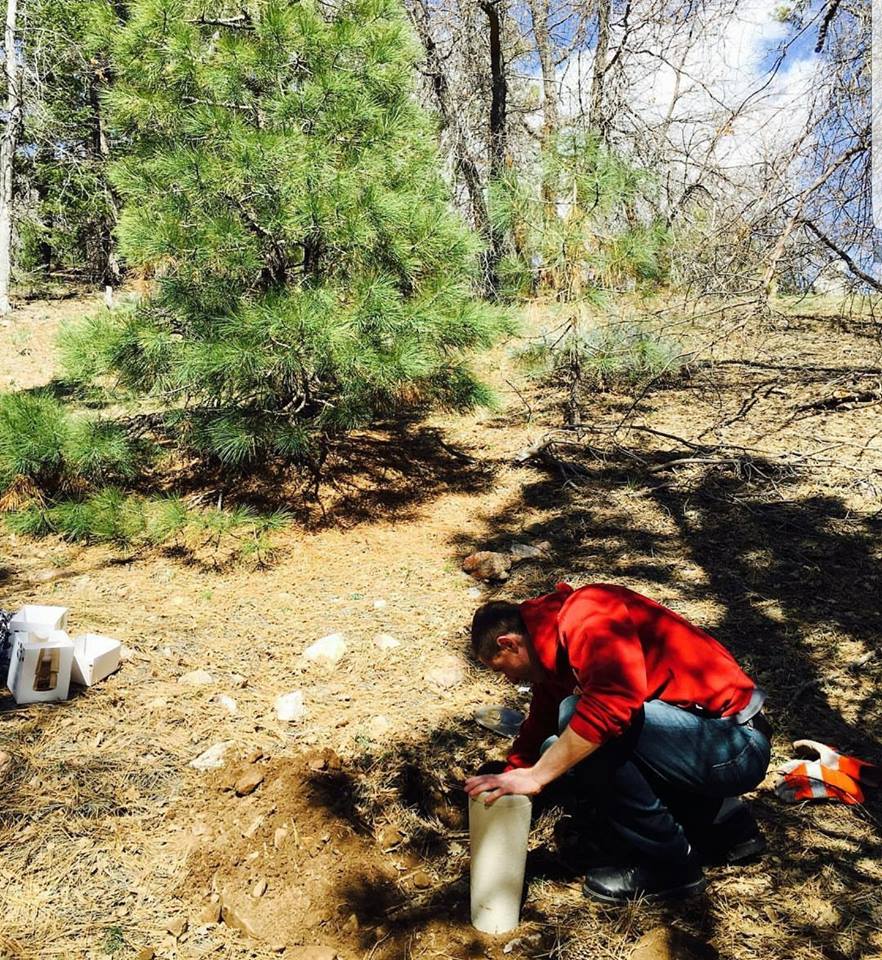
More and more countries in Europe are enabling the plantation of a tree urn in a natural environment such as a forest. Photo: Bios Urn
Is it legal to plant a biodegradable urn in Germany?
On private property in Germany
Burying ashes at home in your garden can be a very personal, flexible and affordable alternative to a traditional funeral. You could, for example, arrange a direct cremation without a funeral, and then hold a private service at your home when you place the ashes in their final resting place. Or, you could bury the ashes after a funeral as part of an intimate memorial gathering with friends and family.
However, Germany (and to a lesser extent Austria) has some of the strictest laws in Europe related to funeral arrangements and cremation. Despite ongoing debates over Germany’s legal burial requirements, laws stipulate that even cremated remains must be buried in a cemetery. That means it is illegal to keep the ashes of your loved one in your home or scatter their ashes.
A recent survey has found that most Germans are not bothered if their neighbor keeps an urn at home or buried in the garden. In most places in Germany it is still required for human remains to be buried in a cemetery. Information source. The data shows a huge jump in public acceptance of keeping urns at home.
When it comes to barring citizens from keeping ash remains at home “the judiciary uses outdated values which cannot withstand a critical review,” said Aeternitas’ lawyer Torsten Schmitt in the report. Germany’s stiff burial regulations have started to loosen up in recent years. The city-state of Bremen allows citizens to keep ashes in the home, as well as the state of North Rhine-Westphalia which are currently (2021) the only two exceptions. Information source 1. and Information source 2.
This move is truly a big step and the change caused a row with Christian Democrats and church representatives. However, the State Parliament went ahead and voted to allow a persons ashes to be scattered on private properties. Information source.
In a public place in Germany
The German funeral and cemetery industry is protected by laws that, with few exceptions, make burial in a cemetery mandatory, even if the deceased has been cremated. Der Friedhofszwang, the legal requirement that deceased persons be buried in a cemetery, is one of those grating German terms that truly expresses the rigidity of German law concerning death and funerals. Information source.
It is unfortunately prohibited for human cremation ashes to leave the cemetery if it is not in the hands of a funeral director.
Likewise, it is prohibited to disperse or bury them in nature. Information source.
There is sadly little free choice for families faced with the death of a loved one in Germany.
Because of the high funeral costs and strict regulations, many Germans illegally take ashes to Switzerland for ash spreading ceremonies. Information source. Switzerland has almost no restrictions on what must be done with cremains (see above). However Swiss residents living near Lake Constance (der Bodensee) have long complained about the many Germans who come to spread the ashes of the deceased in the lake’s waters along the Swiss shore of Lake Constance because it is illegal to do so on the German side. They object to having the lake, a source of drinking water, “contaminated” by cremains. Information source.
The only possible option is for a person to have their ashes buried in a forest; an option available through two companies only: Friedwald and RuheForst. Information source. Here is some additional information on these types of burial grounds in Germany.
Is it legal to plant a biodegradable urn in Denmark?
On private property in Denmark
Burying ashes at home in your garden can be a very personal, flexible and affordable alternative to a traditional funeral. You could, for example, arrange a direct cremation without a funeral, and then hold a private service at your home when you place the ashes in their final resting place. Or, you could bury the ashes after a funeral as part of an intimate memorial gathering with friends and family.
In Denmark, the laws are quite strict regarding keeping the ashes at home. The Danish laws allow the families to bury the ashes in the church’s yard or to scatter them. Information source.
Natural burials with a Bios Urn may take place on private property as long as you have the permission through the local Church. Information source.
There are some other conditions the natural burial on private land must comply with such as the size of the plot must be over 5000 square meters or the place where the urn is lowered must not be marked. Thus, there must not be a stone or memorial that makes at the site of appearance of cemetery. Information source.
A declaration is then registered on the property, which makes the owner at all times obliged to refrain from dig. Information source.
Here is more information on how death is approach in Denmark.
In a public place in Denmark
As specified above, in Denmark, the laws are quite strict regarding keeping the ashes at home. The Danish laws allow the families to bury the ashes in the church’s yard or to scatter them under some circumstances. Information source.
Scattering or burying human ashes in nature as one wishes is only allowed under certain restrictions – dispersal of ashes is permitted in the sea for example – the same regarding planting a biodegradable urn in a public space such as a forest or park as long as you have the permission through the local Church. Information source.
As far as green cemeteries or natural burial grounds are concerned,there are currently only few in Denmark, no more than 10 at the most. Since 2008, it has been possible to be buried in nature in Denmark. Although it has been legally allowed since 2008, it was not until 2014 that the first municipal forest cemetery was opened. In January 2018, the first private forest, Stensballegaard Skov near Horsens, was inaugurated as a forest burial site. Information source.
Is it legal to plant a biodegradable urn in Portugal?
On private property in Portugal
Burying ashes at home in your garden can be a very personal, flexible and affordable alternative to a traditional funeral. You could, for example, arrange a direct cremation without a funeral, and then hold a private service at your home when you place the ashes in their final resting place. Or, you could bury the ashes after a funeral as part of an intimate memorial gathering with friends and family.
According to Portuguese law, families, loved ones and friends can also “take the ashes with them, store them wherever they want or even release them into the sea,” Ganhão told Lusa. Information source. So from the information that we can find included here and in the paragraph below, it is possible to plant a biodegradable urn on private land, but you should check this with your local authorities. If you live in Portugal and know more about this, please write to us in the Comments section below!
In a public place in Portugal
Commonly in Portugal, cremated remains are placed in an urn and committed to an indoor or outdoor mausoleum or columbarium, interred in a family burial plot, or included in a “special urn garden”.
Families in Portugal also have the option to scatter or bury the remains. This can be done in a designated cemetery garden in Portugal or at a place that was special to the person. Information source. You can carry out an internet search for keywords such as “cinerary park”, “cemetery garden”, “burial woodland”, “green cemetery” or “natural burial ground” in Portugal to see if there are any near you.
Is it legal to plant a biodegradable urn in Poland?
On private property in Poland
Burying ashes at home in your garden can be a very personal, flexible and affordable alternative to a traditional funeral. You could, for example, arrange a direct cremation without a funeral, and then hold a private service at your home when you place the ashes in their final resting place. Or, you could bury the ashes after a funeral as part of an intimate memorial gathering with friends and family.
In Poland, although ashes are not supposed to be kept at home, this report claims that “it is highly probable that people do so nonetheless. The lw, aside from asserting an obligation to bury the remains of the dead, leaves the question of verification of burial somewhat unresolved. After the remains have undergone incineration, the urn is delivered to the customer together with the paperwork confirming that the cremation has been carried out. We can therefore surmise that some ashes are kept in […] in homes, gardens.”
In a public place in Poland
The majority of people in Poland are catholics. The church banned cremation for centuries, but began to allow the practice in 1963, as long as it is not done for reasons at odds with Christian doctrine. In 2016 Vatican released an announcement that Ashes to ashes is fine, as long as you don’t scatter them. The Vatican decreed that the ashes of loved ones have no place in the home. It urged that cremated remains be preserved only in cemeteries or other approved sacred places. Information source.
There are different thigs that you can do with the ashes. From the classic burial of urns in a cemetery, either in traditional graves or small urn tombs to the increasingly popular practices of burial in columbariums and memory walls which have niches for one or several urns.
A biodegradable urn containing ashes could also be dropped in the sea, or the ashes can be scattered in a “Memory Garden” according to this information source, although we struggle to find examples of such memory gardens in Poland. Thissame report goes on to say: “The law, aside from asserting an obligation to bury the remains of the dead, leaves the question of verification of burial somewhat unresolved. After the remains have undergone incineration, the urn is delivered to the customer together with the paperwork confirming that the cremation has been carried out. We can therefore surmise that some ashes are kept in the wild, outside cemeteries: […] in rivers, lakes, or the sea.”
Final considerations for all countries
This article hopes to provide initial guidance as to the legalities of planting a biodegradable tree urn, but we cannot be responsible for the accuracy of the information. We highly suggest that you contact the local authorities or a local funeral home for exact and up-to-date information.
Here is some information that may prove useful should anyone wish to know the benefits of planting a Bios Urn ®:
The environmental impact of planting a Bios Urn®
Why Planting your Ashes Directly under a Tree will not work and How the Bios Urn® solves the problem
And finally, when planting in a natural environment, what we always say is that it is absolutely necessary to respect the local flora and plant an appropriate tree species which matches the local environment.
What did you think about this article on whether it is legal to plant a biodegradable urn where you live? It is a complex matter and if you have anything to add or amend, or if your European country is not featured here, please let us know. We would love to hear from you in the Comments section below!
To keep up to date with all the latest Bios Urn ® news and stories, you can follow us on Facebook, Instagram, Twitter, Pinterest and YouTube!
Join our mailing list to keep you updated of all Bios® news and get a 10% Discount!
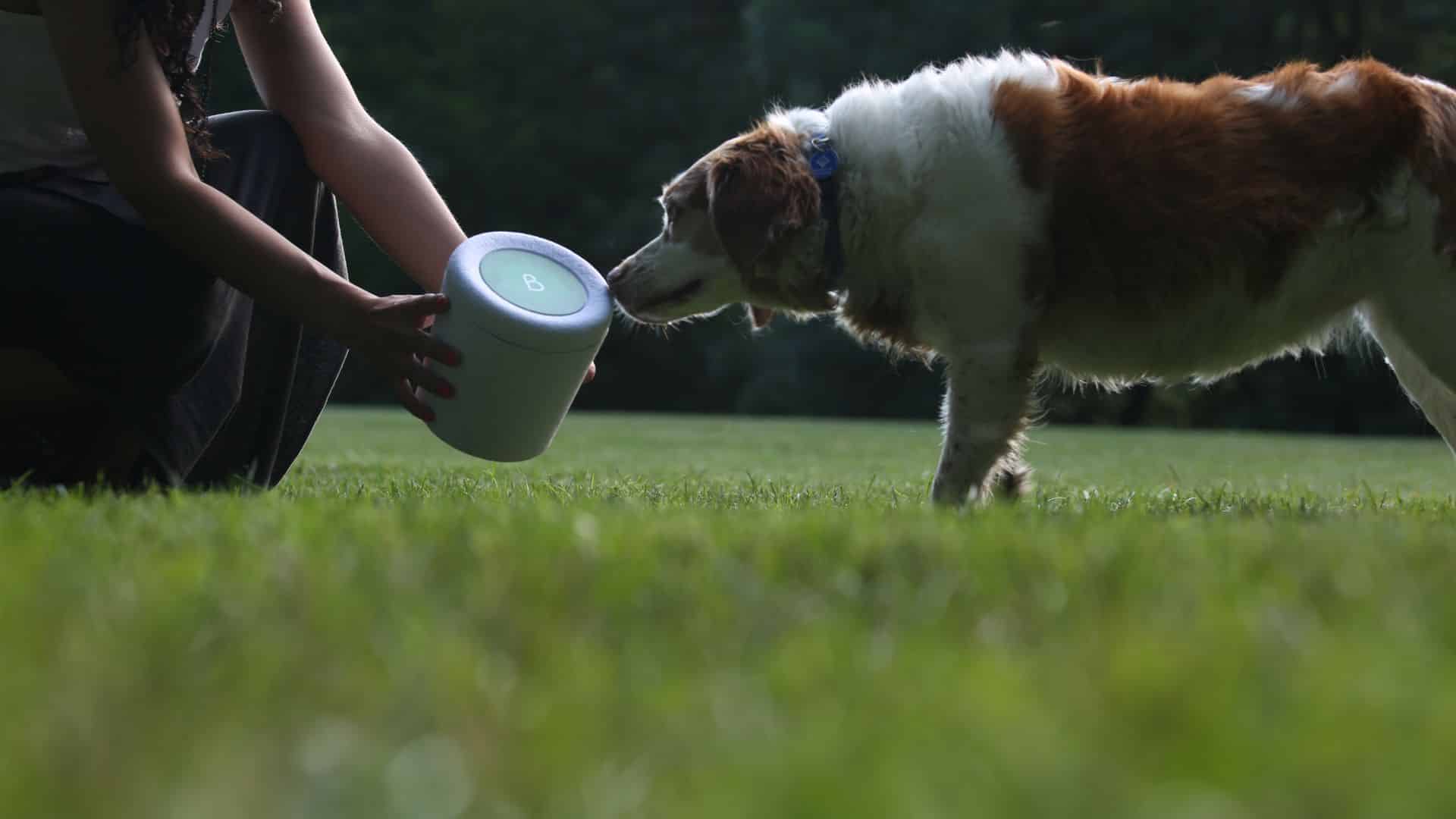
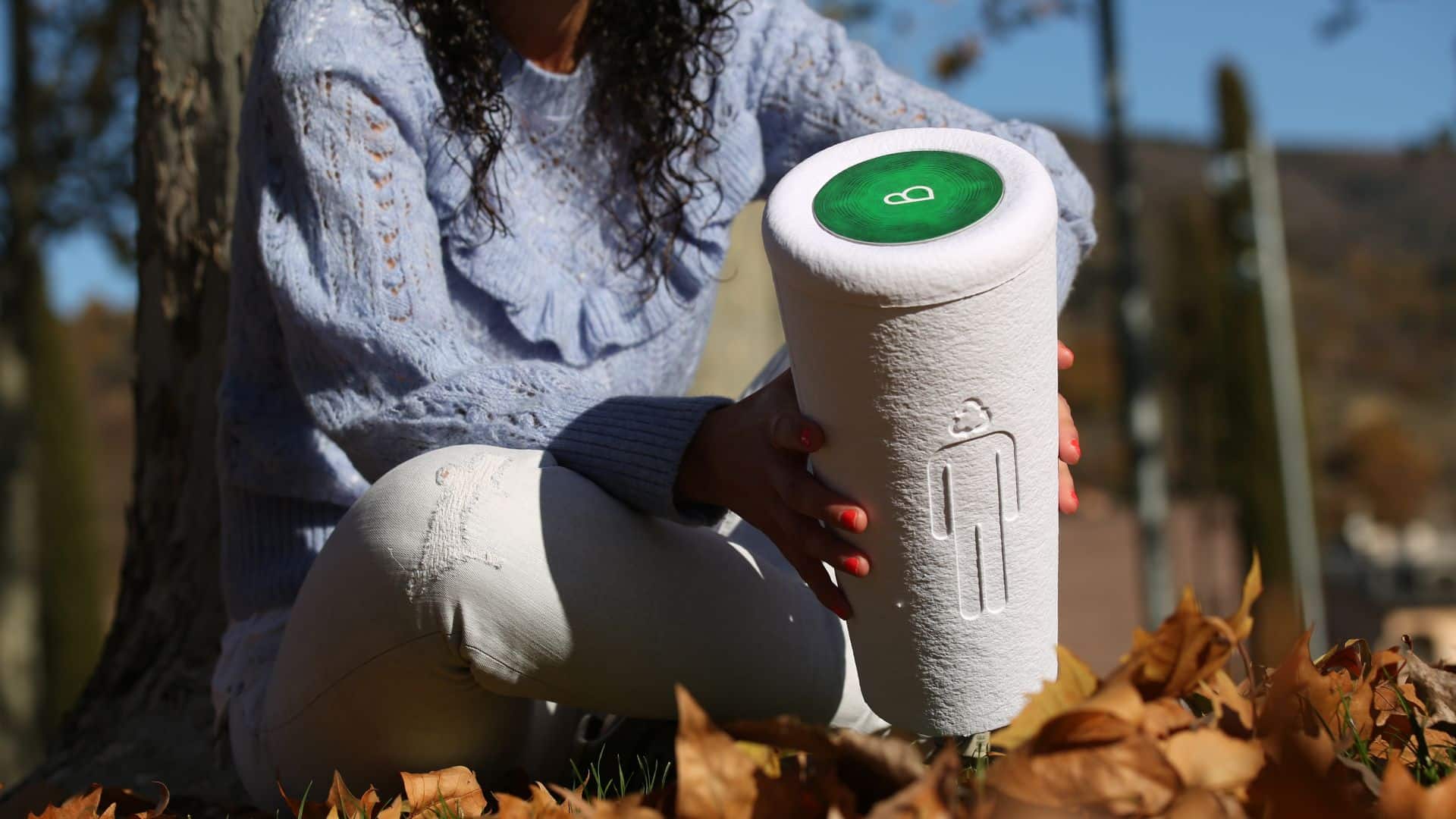




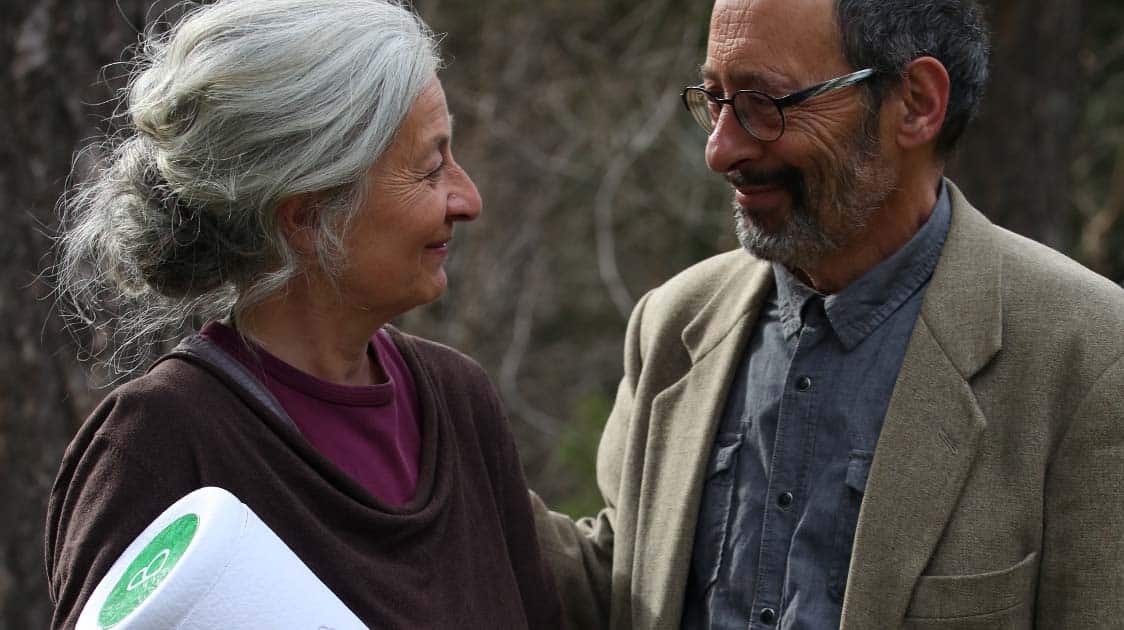

Please, put some information about Poland
Hello Ryszarda, we have now included information on Poland 🙂
What about the United States??
Hi Jo,
Thank you for reaching out and for your interest in the Bios Urn.
Here are the articles about legalities of planting a biodegradable tree urn in the US:
https://urnabios.com/places-to-plant-the-bios-urn-biodegradable-urn/
https://urnabios.com/planting-bios-urn-forest-park-public/
Let us know if we can help with anything else!